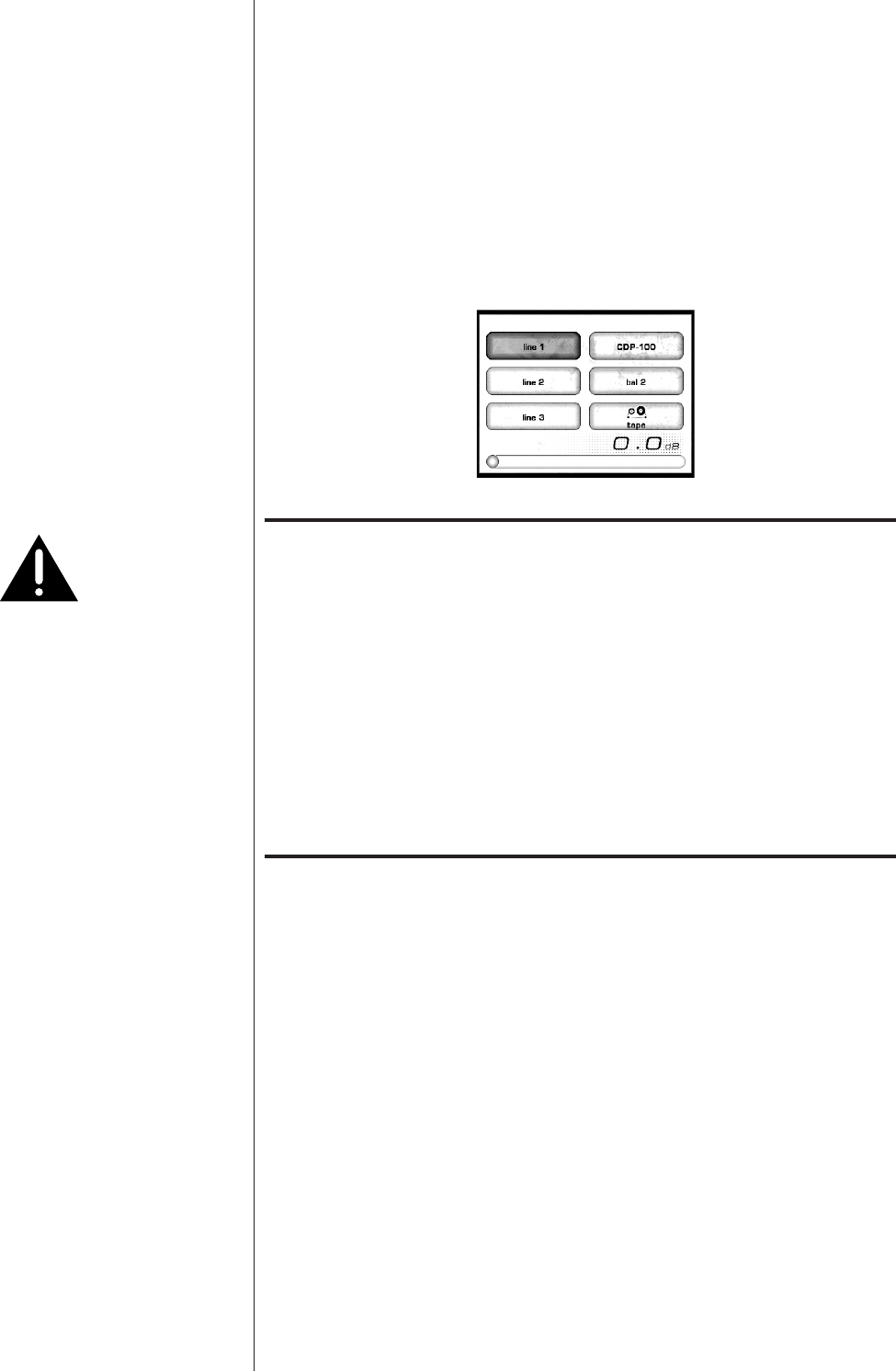
26
• The t button acts like the backspace key on a computer
keyboard, moving the cursor to the left and eliminating any
characters along the way.
• The
u button moves the cursor to the right, adding characters
along the way. (Change each character to what you want as you go
along, using the + and – buttons.)
• The + and – buttons change the current character through the
available characters. They include all upper and lower case letters
of the alphabet, the numbers 0-9, and a variety of punctuation.
When done, your main display might look like this (note the
change in what would otherwise be the
bal 1 input).
Warning! When an input is renamed ‘SSP’, it becomes a unity gain
input. When such an input is selected, the volume control of
the CP-500 is disabled, all outputs are driven at line level and
the volume indication is removed from the main menu.
This is useful in situations where the CP-500 is being used
to pass through a signal coming from a component with its
own volume control (e.g. Classé SSP-300 surround sound
processor), or when one of its outputs is sent to a component
with its own volume control (SSP-300). Care should be taken
to adjust the volume control of the other component before
selecting the SSP input, as the resulting volume level may be
uncomfortably loud.
• input balance adjusts an input-specific balance adjustment to
compensate for the possibility that a particular source might be
slightly imbalanced. This is especially common with turntables,
since even the finest handmade cartridges are subject to small
channel imbalance problems.
• input offset provides a way to compensate for differences in
output level between various source components. Doing so
can eliminate the sometimes annoying and abrupt changes in
volume encountered when switching between different source
components.


















